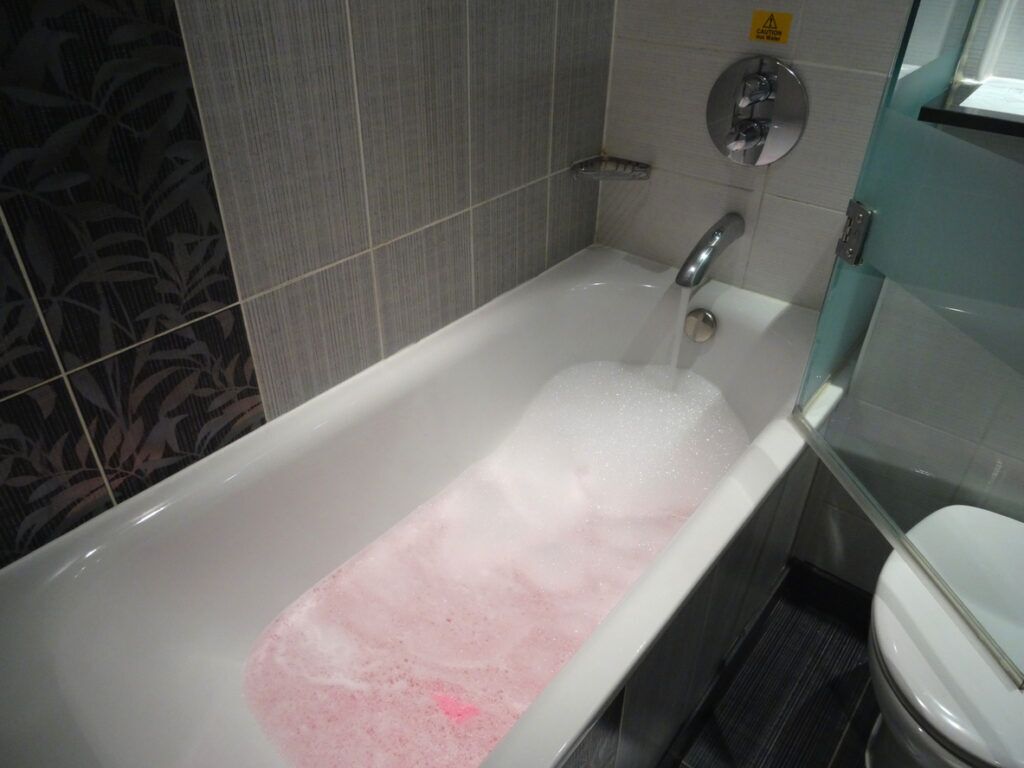We have discovered the article relating to Why is There Sewage Coming Up Through the Bathtub below on the web and accepted it made sense to relate it with you here.

Sewer back-up in the tub can be a stressful and unsanitary problem for any kind of house owner. Not only is it inconvenient, yet it additionally positions major health and wellness risks and shows underlying problems with the plumbing system. Comprehending why sewage is showing up via the tub is critical for taking proper action to resolve the issue efficiently.
Intro to the Problem
Understanding the Trouble
When sewage starts backing up right into the bath tub, it's a clear indication of an issue with the drain system. The wastewater that must be streaming away from your home is rather locating its back into your space, which can lead to considerable damages and health hazards.
Possible Reasons
Numerous factors can contribute to sewage back-up in the tub. From obstructions in the drain line to problems with the plumbing facilities, identifying the root cause is essential for finding a solution.
Usual Factors for Sewage Backup
Blockages in the Sewer Line
Among one of the most typical root causes of sewage back-up is an obstruction in the drain line. This can happen because of the accumulation of debris, grease, or international objects in the pipes, protecting against correct circulation and triggering sewage to support right into your bath tub.
Tree Origin Invasion
Tree roots seeking dampness and nutrients can penetrate sewer lines with tiny splits or joints. With time, these origins can grow and broaden, creating significant damage to the pipelines and resulting in sewer back-up concerns.
Aging Infrastructure
Older homes may have outdated plumbing systems that are much more prone to deterioration, splits, and deterioration. As pipes age, they come to be extra vulnerable to leakages and clogs, raising the chance of sewer backup incidents.
Heavy Rainfall or Flooding
During durations of heavy rainfall or flooding, the drain system might become overloaded with excess water, creating backups and overflows. This can cause sewage backing up into tubs and various other components inside the home.
Health And Wellness Threats Associated with Sewage Backup
Contamination of Water Supply
Sewage backup can pollute the water in your home, posing a major health and wellness risk to you and your family. Direct exposure to infected water can bring about intestinal concerns, skin infections, and other ailments.
Spread of Disease
Sewage includes unsafe bacteria, viruses, and bloodsuckers that can create a series of diseases, consisting of liver disease, cholera, and gastroenteritis. Entering into contact with sewer or infected surface areas places you at risk of infection.
Mold Growth
Moisture from sewage back-up can develop ideal conditions for mold growth in your home. Mold and mildew spores can aggravate respiratory system problems and trigger allergies in delicate people, making prompt clean-up crucial.
Signs of Sewer Back-up
Foul Odors
Undesirable odors originating from drains pipes or components, particularly in the restroom, might show sewage backup concerns. These odors are typically strong and relentless, signaling an issue that requires immediate attention.
Slow Draining Fixtures
Bath tubs, sinks, and toilets that drain pipes gradually or not whatsoever could be experiencing sewage back-up. If multiple fixtures are affected simultaneously, it's most likely that the concern stems from a typical point, such as the main sewage system line.
Gurgling Sounds
Unusual gurgling or bubbling sounds originating from drains when water is running somewhere else in your home are a sign of air trapped in the plumbing system. This air buildup can result from sewage backup and need to be examined quickly.
Immediate Actions to Take
Shutting Off Supply Of Water
In case of sewage back-up, it's important to turn off the water to prevent more contamination and damage. Find the main water shutoff valve in your home and shut it off until the issue can be resolved.
Calling a Professional Plumber
Managing sewer backup is not a DIY task. Get in touch with an accredited plumber with experience in dealing with sewage-related concerns to examine the situation and perform needed repairs or clean-ups.
Staying Clear Of Contact with Contaminated Water
Up until the sewer backup is resolved, prevent contact with polluted water to stop the spread of microorganisms and pathogens. Use safety equipment if you must be in the affected area and wash your hands completely later.
Safety nets
Routine Maintenance of Drain Lines
Schedule regular examinations and upkeep of your drain lines to identify and resolve prospective issues before they rise right into major troubles. This can include cleaning debris, examining for tree origin breach, and repairing any kind of broken pipelines.
Setting Up Backwater Shutoffs
Consider installing backwater valves in your plumbing system to stop sewage from receding into your home during durations of heavy rainfall or flooding. These valves instantly close when water starts backing up, safeguarding your building from contamination.
Appropriate Disposal of House Waste
Prevent purging anything other than toilet tissue and human waste down the commode to stop obstructions and blockages in the drain line. Dispose of oil, oil, and various other house chemicals properly to reduce the risk of plumbing problems.
Cleaning Up After Sewage Backup
Disinfection Procedures
Thoroughly disinfect and disinfect influenced locations after sewage back-up to get rid of unsafe germs and avoid mold and mildew development. Use appropriate cleansing items and protective gear to make certain secure and efficient cleaning.
Repair of Impacted Locations
Fix any type of damage to flooring, walls, or fixtures brought on by sewer back-up. Depending upon the extent of the damage, you might require to replace carpets, drywall, or other materials to recover your home to its pre-loss condition.
Why Is Water Backing Up in My Bathtub When I Flush My Toilet?
What to do about a sewer line clog
First, don’t bother with plunging. No amount of plunging will dislodge the clog in a sewer line. The clog is too far away. Plungers are for clogs in the toilet itself, not the sewer line. Plus, the most likely causes of a sewer clog are:
Tree roots Flushed toys or feminine products Grease buildup Those items don’t move easily. And in the case of tree roots, the roots need to be cut out of the pipe and the pipe will need to be repaired.
You’ll need a closet auger. A closet auger is a type of plumber’s snake with a protective cover to keep from scratching the delicate porcelain toilet. If the clog is further down, you may need to remove the toilet or use one of your cleanouts to get to the clog.
We also recommend doing a video inspection of the drain to ensure that the cause of the clog has been completely removed. Otherwise, you could have the same problem again in a few days or weeks.
https://mspplumbingheatingair.com/blog/why-is-water-backing-up-in-my-bathtub-when-i-flush-my-toilet

Do you like more info about Why is There Sewage Coming Up Through the Bathtub? Put a remark below. We will be glad to listen to your thinking about this posting. We hope that you come back again in the future. Do you know about someone else who is looking into the niche? Do not hesitate to share it. Thanks so much for taking the time to read it.
Get A Free Estimate